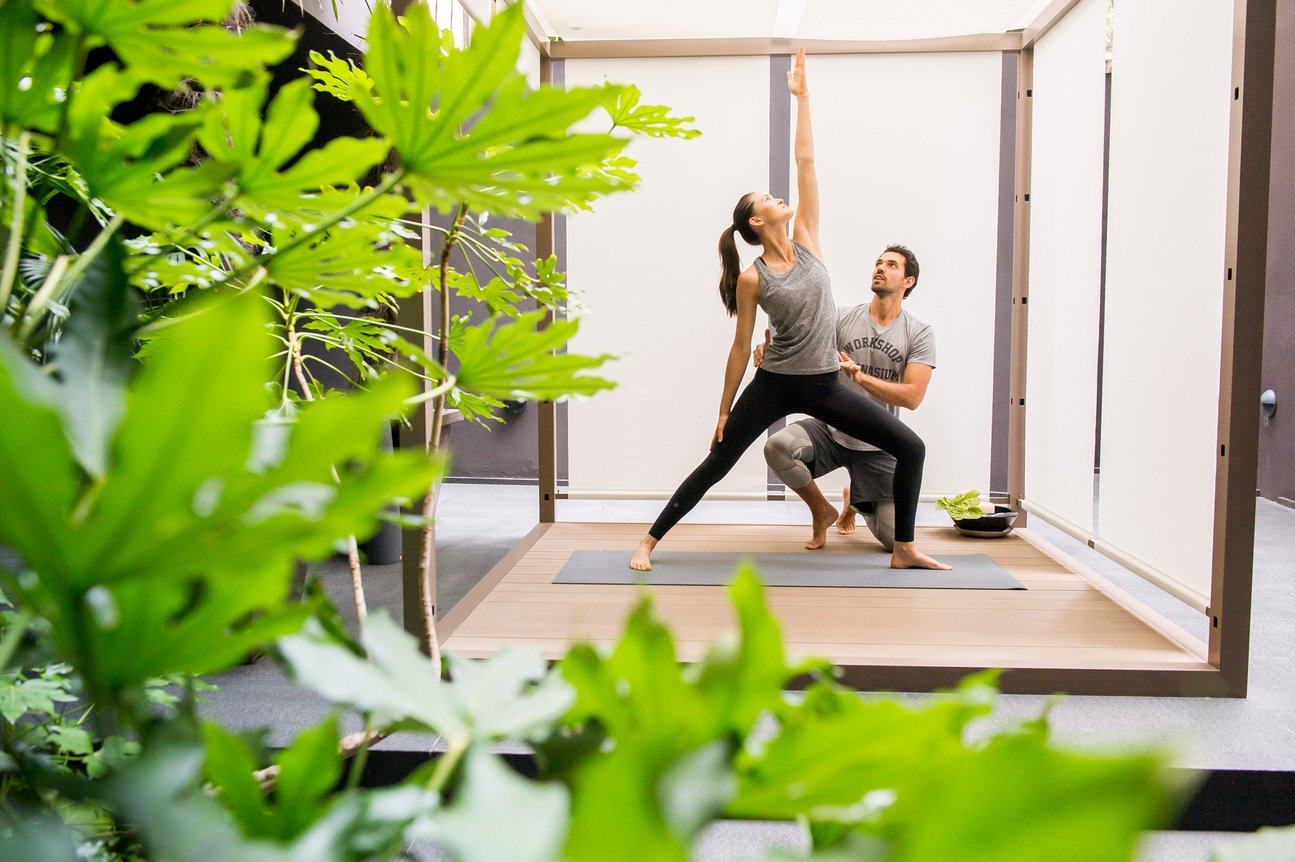
This Is When You Should Work Out
Discover a daily workout routine for you
Whether you swear by an early morning workout, or prefer to get your heart racing before bed, everyone has a time they like to work out. Read on to find out when might work for you.
Is there a time of day that’s good for everyone to work out at?
It depends on individual circumstances, but I have seen better lifestyle choices made and better adherence to training when people train first thing in the morning. That’s generally because we have a finite amount of willpower throughout day that’s always highest in morning and that decreases as day goes on. It’s been well reported that people who work out earlier in the day also make better food choices and have improved sleep quality and that’s all to do with your stress hormone cortisol. Exercise is effectively a stress on the body which signals to the body to release cortisol. You want to have high levels of that the morning because it wakes you up and acts as an energiser to the body, but then as the day goes on you want cortisol levels to drop off in preparation for sleep so that you’re calmer and more relaxed. I guess you could say that’s one of the downsides to training later in the day, in that it spikes your cortisol and it’s jacked up when you’re trying to sleep.


Are there certain type of exercise of forms of training that are better suited to certain times of the day?
There are studies that show that working out in accordance with your daily bodily systems such as your hormone production and central nervous system activity, is going to get you good results; that’s because you’re working in harmony with what’s going on in your body. First thing, around 9am, is when we have our highest testosterone secretion so if goal is to put on lean muscle then this is the perfect time of day for it. Any sport you need to be alert for or have quick reactions for would be good to do at 10am. Around 2.30pm is best time for coordination while around 3pm tends to be when you have your fastest reaction times so anything like sprinting is good here. Your aptitude for cardiovascular efficiency and strength happens at 5pm, so training for a marathon for example would be good to do then. This is of course assuming that it fits in with your daily schedule and is doable for you and most importantly, that you’re not sacrificing your sleep quality for these timings. Sleep trumps everything else as bad sleep impacts everything and makes recovery and training harder anyway.
What factors should you take into account when deciding what time of day is best for you?
Adherence is ultimately the thing that’s going to lead to results, so there’s no point saying you’ll do a 7am workout if your personal circumstances don’t ever allow that for whatever reason. Be realistic, choose a time which is something you know you can stick to. Maybe a lunchtime slot works better for you. Most important, overriding thing is that you actually do it. Secondary then we can start picking and choosing right workouts for you based on the time of day.

What are the benefits of working out in the morning vs middle of the day vs evening?
Morning – Working out in the morning is great because you’re working with your natural cortisol curve and hopefully you'll have just had a good and restorative night's sleep. Setting the tone early on in the day will also give you the ability to make better food choices throughout the day and to stick to future workouts.
Middle of the day – This time is potentially easier to slot into your day and the energy you get from your workout will help you get through an afternoon slump. A midday workout is also good if you’re not a morning person and having breakfast and a mid-morning snack means you can get more fuel in your system beforehand so your workout might be more productive.
Evening – This time is often easier for some people’s scheduling and you get a whole day of food in your system so that you’re not running on low fuel. Some people are also more alert or more awake by default by then, which helps performance. It might also mean you can work out with a training partner which might help you stick to your programme.
